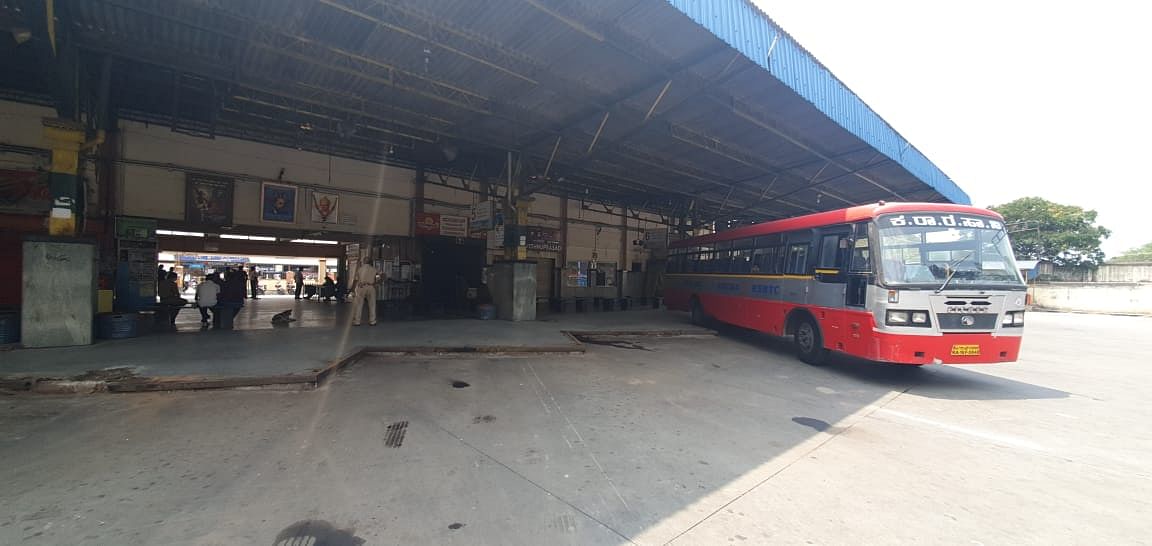
Karnataka road transport corporation (RTC) workers dug in their heels and decided to go ahead with the indefinite strike from 6 am on Wednesday even as the government sought to bring pressure by threatening to invoke Essential Services Management Act (ESMA), Covid-19 protocol and other stringent measures.
Bus services at several cities across the state, including Bengaluru, Hubballi, Mysuru and others, were affected starting from Tuesday afternoon as drivers and conductors decided not to work in the second shift. This forced several universities to postpone exams while institutions conducting offline classes for class 10 and college students were left in the lurch.
Earlier in the day, Chief Secretary P Ravikumar ruled out the possibility of providing salary to RTC workers on par with the 6th Pay Commission. "Providing 6th Pay Commission salary is impossible. The transport minister has agreed to an 8 per cent hike in salary as interim relief. If we get approval from the Election Commission, we will implement it. There is no question of negotiating with workers to end the strike. We will deal with the strike very stringent," Ravikumar said after a meeting with the chief minister.
In a strong reaction, RTCs saw drivers and conductors not showing up for work on Tuesday afternoon itself. Kodihalli Chandrashekhar, the honorary president of the Karnataka State Road Transport Employees League, rejected the 8 per cent hike and called upon the government to fulfil the promise it made to end the strike in December.
"The 1.3 lakh workers of the four road transport corporations (RTCs) will go on strike from 6 am. We will follow the Covid-19 rules. The government claims they have fulfilled eight of the nine demands. In fact, none of the demands has been met. Instead, they have done an eyewash," he said, adding that they were ready to go to jail.
About 7,000 buses of KSRTC, 6,000 of BMTC, 5,400 NWKRTC and 4,000 of NEKRTC will remain off the roads. As per the latest data, the four RTCs together recorded a daily ridership of 65 lakh, excluding those owning bus passes. These riders are now forced to make alternative arrangements.